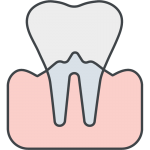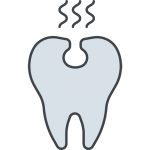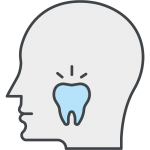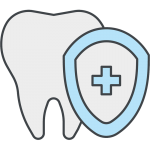A few days ago, we examined the teeth of a child client who had recently gone through heart surgery. It is very important that you inform your dentist about any heart conditions/operations you or your child may have had in the past before any dental treatment. Below, we will discuss the significance of this issue.
Tooth decay (dental caries) and gum disease (gingivitis) are the most common diseases in the mouth. Tooth decay and its complications (e.g. toothaches and dental infections) are still a major health problem for children.
Children with heart conditions have an increased risk of having dental diseases compared with other children due to poor enamel formation. The decay risk is further increased with the use of medications and nutrition supplements containing sugar.
Conditions such as tooth abscess and gum infection can cause ‘bacteraemia’ which is a shower of bacteria (from the oral infection e.g. tooth abscess, unhealthy gums) entering the blood stream. Although the body’s white blood cells usually destroy these germs, infection of the heart lining called an ‘infective endocarditis’ can sometimes occur.
Infective endocarditis is an infection of the tissue that lines the heart and blood vessels. Although rare, it is a serious medical problem which requires hospitalisation and prolonged treatment with antibiotics. Children with congenital heart disease are at risk of developing infective endocarditis.
In many children with congenital heart defects (and in some with other types of heart disease) the smooth lining of the heart (endocardium) may be abnormally thin or roughened in places and bacteria can stick to it and cause infection.
The best way of reducing the risk of endocarditis is to make sure your child’s teeth and gums are healthy. Children with certain heart problems may also be given antibiotic cover for dental procedures to help prevent infection. This decision should be discussed between your dentist and child's cardiologist.
Regular dental visits starting before 18 months of age are important for prevention, early diagnosis and treatment of dental diseases. If dental disease is diagnosed, it should be treated as soon as possible.
Some dental procedures can cause gum bleeding, e.g. cleaning of teeth when gums are inflamed, deep fillings and tooth extractions: such procedures may cause bacteraemia.
You should talk to your child’s cardiologist about whether your child requires antibiotics for these dental procedures. If your child’s cardiologist recommends that they have antibiotic cover it must be given just before the treatment is commenced.
Dental procedures that are unlikely to cause bacteraemia are simple fillings, fissure sealants and cleaning procedures that do not cause gum bleeding. These procedures may not require antibiotic cover (your dentist will advise).
It is important to inform your dentist about your child’s heart condition and any medications they take because certain drugs such as aspirin and warfarin may complicate dental treatment. However, dental treatment is safe with the appropriate precautions. You should talk to your child’s cardiologist about whether your child should have changes to their medications before any dental procedure.












